Stephanie M.
I'm a content writer and novelist who loves books, writing, theater, and my cat. I have published two novels and traveled to London and Paris.
Columnist III
- Plebian Penman
- Common Writer
- Aristocratic Author
- Noble Scribe
- Lurker
- Pssst
- Hand Raiser
- Vocal
- Outspoken
- Extrovert
- Center of Attention
- Forms a Crowd
- Sharp-Eyed Citizen
- Town Watch
- Detective Deskman
- Penman Patrol
- Forensic Fiend
- Motivational Columnist
- Motherboard
- Composition
- Literary Art
- Referencer
- Actor
- Successful Pilot
- Animator
- Animaniac
- Well Read
- Chaptered Mind
- Art Collector
- Article of the Month
- ?
- Articles
37 - Featured
33 - Comments
665
- Ext. Comments
316 - Processed
183 - Revisions
180
- Topics
76 - Topics Taken
5 - Notes
243
- Topics Proc.
74 - Topics Rev.
16
- Points
12189 - Rank
4 - Score
8420
Latest Articles
Latest Topics
The Appeal of Wednesday AddamsThe original Addams Family series graced our televisions in the 1960s. The show was already an adaptation of Charles Addams’ successful comic strip, but has since spawned a series remake, a cartoon, two live-action movies, one animated movie, and a musical. Netflix is now set to stream yet another addition to the Addams canon. However, this one is a bit different, in that it focuses mainly on daughter Wednesday. This makes sense, as Wednesday seems to be one of the family’s more popular members. But, why is she? Does this have to do with Christina Ricci’s treatment of her in the live-action films? Is it her personality, or a way she stands out in her already unusual family? Explore these or other facets of Wednesday and her popularity. You might also consider comparing/contrasting Wednesday with similar unconventional female characters, to see whether they have or haven’t achieved Wednesday’s popularity.
|
Phoenix's Role in Top Gun: MaverickTop Gun: Maverick finally hit theaters after a pandemic-induced delay. The film is filled with nostalgia for fans of the original, and also carries some new material with a distinct 21st-century feel for its newest generation of fans. One such instance of this material is female pilot Phoenix, played by Monica Barbaro. In an interview, Barbaro stated that she enjoys Phoenix’s character, particularly that she is not a love interest for anyone, and that she is one of Maverick’s top co-pilots during the central mission. However, she is still the lone female pilot with any significant dialogue or character development in the film. Is this realistic considering the type of films the Top Gun franchise contains? Is Phoenix still a good representation of females in male-dominated fields, particularly the military? How would the movie have been different had she had more screen time? Discuss.
|
The Changing Relevance of Judy BlumeA film version of the classic and often banned Judy Blume novel Are You There, God? It’s Me, Margaret, is scheduled to hit theaters September 6, 2022. Not much is known about the plot itself, which raises a lot of questions. For instance, when the original book was published in the 1970s, it was unusual for children to be raised without religious affiliation, as Margaret is. Will this be the case for a Margaret of 2022? Will a 21st-century Margaret’s explorations of puberty be treated as scandalous? These and other questions bring up just how relevant Judy Blume’s coming-of-age story, as well as her other stories, such as the Fudge series, Blubber, and Deenie, still are. Millennial adults who grew up with them still consider Blume’s books classics and have introduced their own kids to them, and some Gen Z kids still read and enjoy them. However, Judy Blume doesn’t seem like quite the gold standard of coming-of-age stories she once was. Her plots don’t read as "cutting edge" because they’re not as controversial anymore. You could call them downright tame. Blume is definitely still relevant, but the question has become, just how relevant is she? In the case of Blume and her books, what does "relevant" mean? How is she similar to or different from today’s hottest middle-grade and young adult authors, and can she maintain her place as a classic author, or will her books eventually lapse into obscurity? Discuss. |
The Best Short Stories and Short Story ConventionsShort stories form the backbone of almost any literature and creative writing class, either because students read or write them. Either way, they are analyzed–sometimes to the point of death, but we hope today’s literature students and teachers are moving past such tendencies. Of the myriad of short stories that exist, classic and contemporary, what are some that should belong in any canon? In particular, discuss contemporary stories or collections not getting attention right now, that should be. To go along with this, what are some universal themes, character traits, or tropes that make a short story "work" better than it would if it were written in longer form? Do some topics or themes lend themselves better to short form, and why?
|
Pending | Creation Stories and Creative WorldbuildingEvery culture has some explanation for the creation of the world and its people. Some of these stories are tied to a religious faith, while others are more cultural or scientific in nature (i.e., the Big Bang theory). However, every creation story gives us a foundation on which to build a view of the world. Writers need these foundations as well, particularly if they’re coming up with completely new worlds and systems. This is common practice in genres like fantasy, sci-fi, and dystopian, to name a few. Examine how writers might use existing creation stories as templates or guidelines for their own worldbuilding. Discuss, for example, how creation stories can be useful whether a writer is using a religious system or not. What was created or prioritized first in a given writer’s world, and why? How are new things created, or are they? How is the creation or cessation of life handled? Are there anathemas, and what are those? Has the writer’s world undergone a major shift like original sin?
|
Reading Anne Frank at a New Stage of COVIDWhen the COVID-19 pandemic began, a handful of writers found solace and inspiration in Anne Frank. PJ Grisar of the Jewish Daily Forward, essayist Leigh Stein, and others wrote about how "the world [looked] to Anne Frank" during the first wave of the crisis (Grisar) and how her experiences contrasted with and mirrored our own. Two years later, Anne Frank and her "mirror" have not gone away. Some continue looking to her for inspiration, while others, such as Robert F. Kennedy Jr., compare living as an unvaccinated American to living as a Holocaust victim, thereby stirring controversy and anger. But no matter how Anne Frank fits into the pandemic landscape, she remains a major part of it for many people. How do you think readings and discussions of Anne Frank’s diary will change as the pandemic enters a new stage and hopefully ends soon? Why do you think she resonates, even though comparing our situation to the Holocaust and Nazi Germany is rightfully offensive? Are there examples of classic or current fiction that could be read alongside Anne Frank as a study of the pandemic, lockdowns, and similar situations? Discuss.
|
The Impact of the Princess Rap BattleSeveral years ago, YouTuber Whitney Avalon gave us a mashup not many people were expecting–Disney princesses competing against each other in rap battles. Some princesses, like Cinderella and Belle, competed alone, while others, like Rapunzel and Anna, competed as couples with their respective princes. Over time, Avalon expanded to Disney and non-Disney villains (Queen of Hearts vs. Wicked Witch of the West), and non-Disney heroines (Dorothy vs. Alice). The result was a series of memorable, humorous, and surprising videos that showed princesses and heroines in new lights and arguably made the rap battle and surrounding culture accessible to broader audiences. Until Whitney Avalon, it’s fairly unlikely that most of us, this writer included, ever pictured majority-white, extremely feminine princesses and heroines spitting clever, deep-cutting hip-hop lyrics. Discuss the impact and influence of the Princess Rap Battles, especially when compared to other battles of their type (ex.: Epic Rap Battles of History). Do you think these battles make rap and hip-hop more accessible to women, Disney fans, and other such audience, or does the term Princess Rap Battle pigeonhole them? It’s been awhile since the last Princess Rap Battle; what might Whitney Avalon do to improve on the content and bring new audiences in? What do these battles say about the structure and poetry of rap, hip-hop, and battles in general? |
Are Readers Burned Out on YA Dystopia?Recently, talk among book enthusiasts has circulated that YA dystopia has burned out. The genre is certainly huge, but whether it’s burned out, cliched, or tired in any way depends on whose books you read. Are there certain authors who give YA dystopia a burned out feel? Are there authors, or characters, who have brought fresh situations or themes to the genre? And if the genre is burned out right now, how might it be "revived?" Discuss.
|
Latest Comments
| Classic Literature's "Infinity Girls" | |
@Chili: Yes. *sigh* She does become less “quirky” as she grows up, which I guess is more a reflection of her era than anything else. Still, it’s disconcerting. And as a cat-lover, bias and hate against cats isn’t something I tolerate well. 🙂 | Classic Literature's "Infinity Girls" |
@Braun: Absolutely not! | Classic Literature's "Infinity Girls" |
@Paxton: Me, too. I first tried to read the book when I was 10. I didn’t get through it then, and I wasn’t fully aware of how much I identified with Jane because, well, her “infinity” personality wasn’t something I knew I had, much less knew to look for with fictional characters. But yes, I now recognize her as a soul sister. | Classic Literature's "Infinity Girls" |
@Blake: I’m so glad! | Classic Literature's "Infinity Girls" |
@Braeden: The 1985 series was my first, so it’s my favorite. But having seen Anne with an E, I like it a lot, too. I honestly think Amybeth McNulty makes the better Anne, because as you alluded, she’s a kid and she plays Anne like a real kid. Even as a teen, Amybeth plays Anne youthful, while Megan in Anne’s teens and twenties read a bit more like a 30-something. | Classic Literature's "Infinity Girls" |
@Bridge: Yes, Anne, thank you so much for your muchness. | Classic Literature's "Infinity Girls" |
@Valencia! We are kindred spirits! I adored all those books! | Classic Literature's "Infinity Girls" |
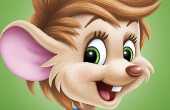
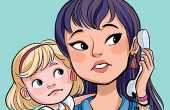
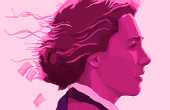

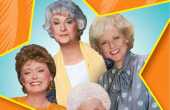
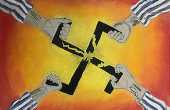

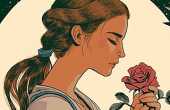
@Zoie: I love that story.